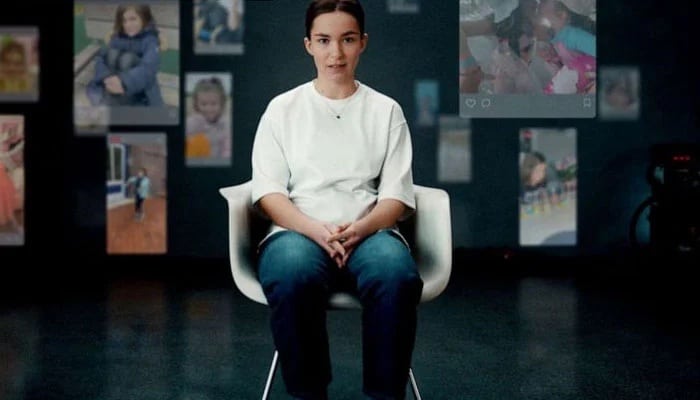Deutsche Telekom’s thought-provoking video ad prompts parents to rethink how they share information about their children on social media.

With millions of views, this commercial uses cutting-edge artificial intelligence (AI) technology to virtually age a nine-year-old girl named Ella and played by an actor.
This powerful message aims to highlight the potential risks and consequences of over-sharing a child’s digital footprint.
In the video, AI-generated Ella openly talks to her parents, played by actors who frequently post online about their lives, unaware of her potential influence. “For you these pictures are just memories, for others they are datas,” she warns. “And perhaps the beginning of a terrifying future for me.”
While the video itself is fiction, experts agree that the underlying message is truly alarming. Rebecca Portnoff, director of data science at Thorne, a nonprofit that fights child sexual abuse online, stressed that once an image is shared online, it’s difficult to control the distribution of the image.
The risks associated with over-sharing have already been documented and are exacerbated by the increasing accessibility of AI technology. Malicious individuals can abuse this technology and public data to turn innocent photos and videos into sexual or harmful content.
This phenomenon is known as “sharenting” and allows parents to share content about their children to connect with others.
Deutsche Telekom’s campaign highlights several potential dangers, including online bullying, identity theft and the creation of child sexual abuse material (CSAM).
Boston Children’s Digital Wellness Lab experts estimate that a staggering 7.4 million identity fraud cases per year by 2030 could be linked to parents providing too much personal information online.
AI-powered generative technology makes the problem even worse by enabling realistic reproduction of a child’s appearance and voice. Predators can use these replicas to develop entirely new malicious materials or manipulate existing images.
To protect children’s privacy and reduce risks, experts advise parents to share photos and content in personal albums only with trusted family and friends and avoid public disclosure. Additionally, it’s important to encourage open and unbiased conversations with children about online safety.
Understanding the importance of keeping private information private and the permanence of her content online will help her navigate the digital world responsibly.





